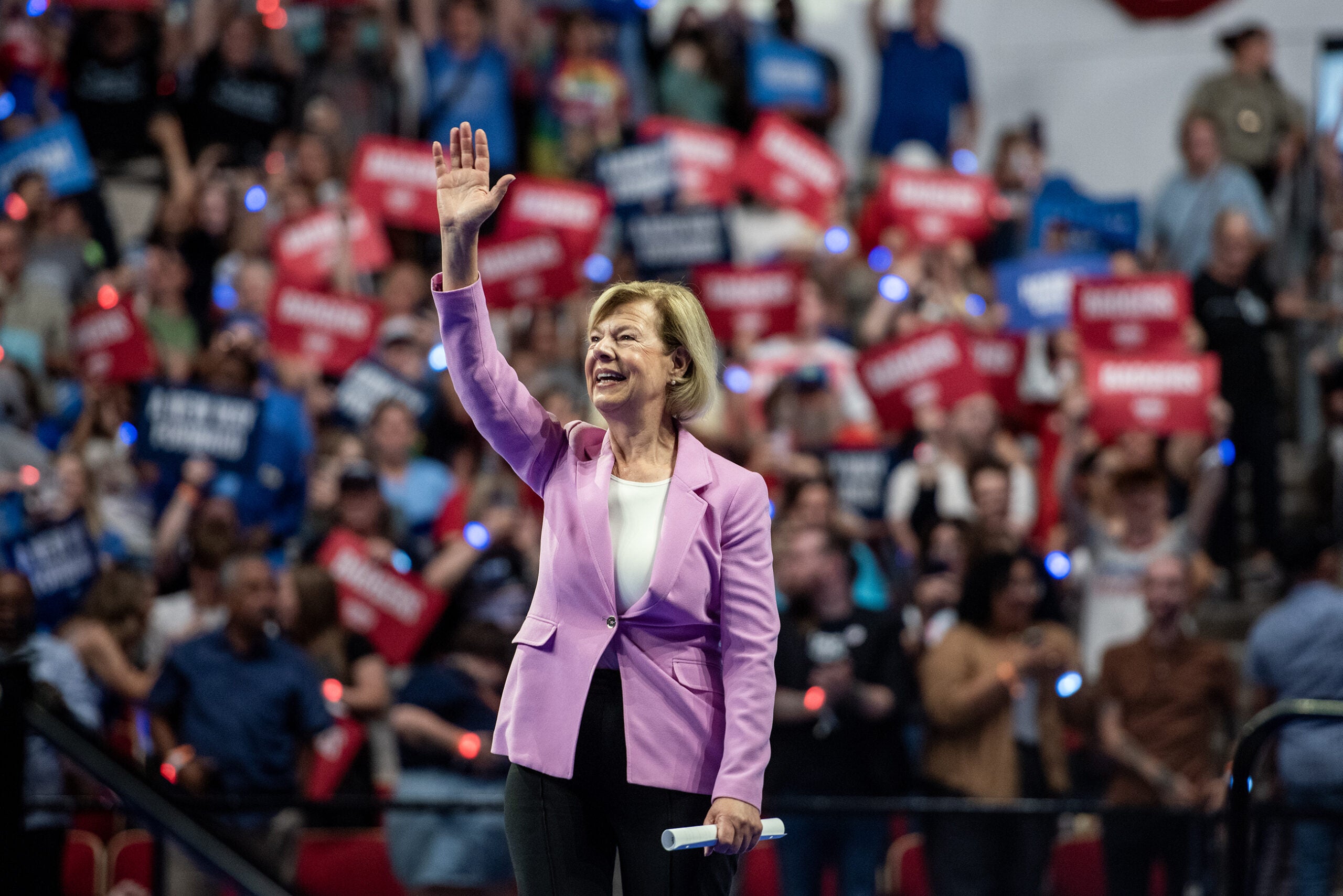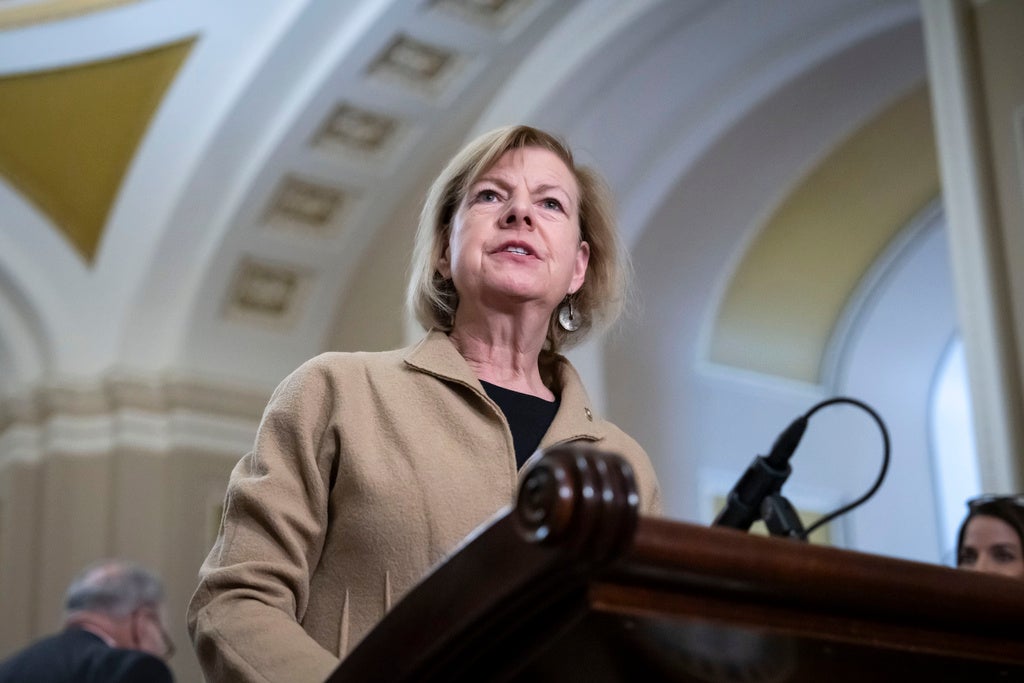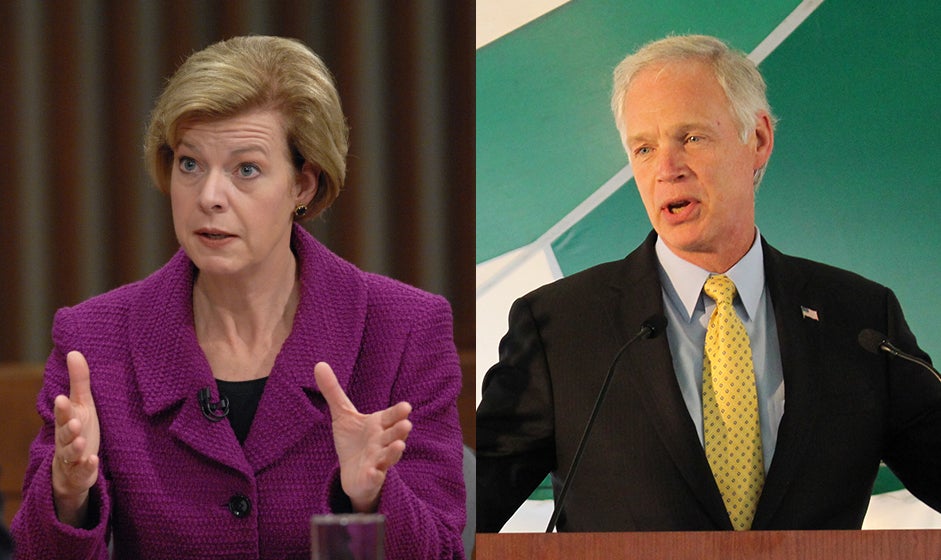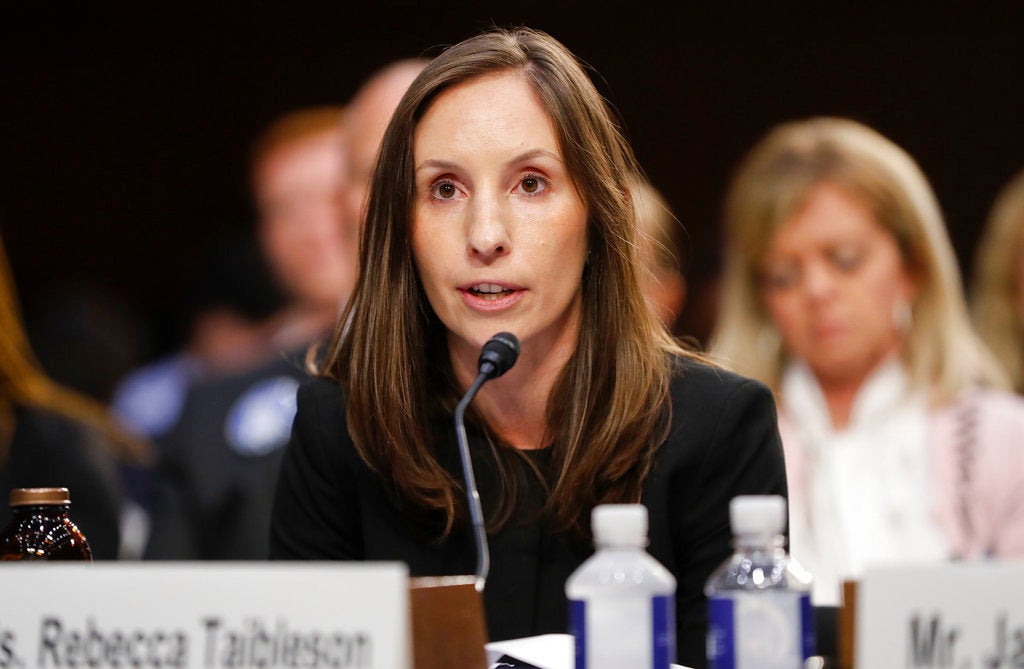Early on a sunny September Saturday, a few dozen volunteers gathered on Madison’s far west side in a nondescript storefront nestled near two salons, one for pets and another for humans. They were there to knock on doors in support of Democratic candidates.
Coordinated by Team Gold, a Madison-based organizing group aligned with the state Democratic Party, volunteers at one table were assigned a map of the blocks they’d be canvassing. At a second table, they picked up packets of campaign literature to disperse. At a third, they could grab snacks. Leaders provided training to first-time door knockers, like how to share their personal motivations for voting Democratic and how to leave pamphlets at empty homes— only at the door, never in a mailbox.
Meetups like these are a routine part of get-out-the-vote efforts, but on this day, a murmur picked up as people realized who’d just quietly entered the room. It was U.S. Sen. Tammy Baldwin, an icon in Wisconsin Democratic politics.
News with a little more humanity
WPR’s “Wisconsin Today” newsletter keeps you connected to the state you love without feeling overwhelmed. No paywall. No agenda. No corporate filter.
When Baldwin arrived at the Madison storefront, the crowd moved toward her with a slow gravitational pull. Organizers eventually handed her a microphone, and as she addressed the group, her message was simple: her campaign needs to be in every corner of the state.
“So you — by doing doors, by doing campuses, by engaging voters — are boosting turnout in extraordinary ways,” she told the group. “Thank you for being willing to get out there, being willing to bring the messages to people’s doors.”
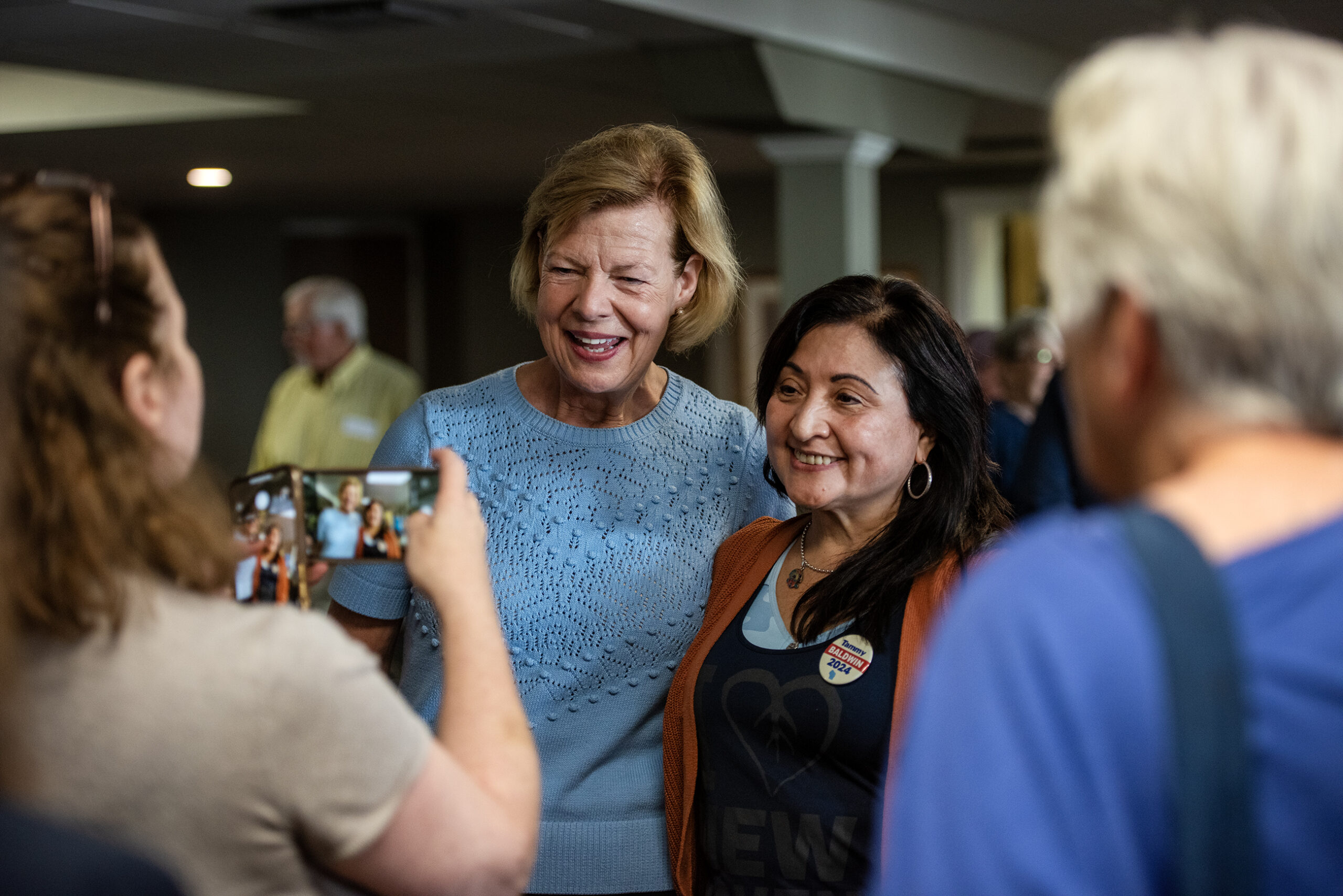
It was the start of a packed day of campaigning for the two-term senator, whom Democrats are counting on reelecting as they work to maintain a narrow edge in the U.S. Senate.
Her message hits home in places like deep blue Madison, where she won surrounding Dane County by about 78 percent six years ago. But she is an outlier in Democratic politics. She outperforms other members of her party in Republican counties that helped to elect former President Donald Trump.
This year, that success is being tested as she’s challenged by Republican Eric Hovde, a Madison businessman who is attacking Baldwin’s long career in politics, which includes 12 years in the U.S. Senate and 14 years before that in the U.S. House.
Despite the extra attention on her race this year, she said her strategy hasn’t changed. It starts, she said, by simply being there for voters, and listening.
“That’s the secret sauce,” she told WPR. “Travel everywhere. Show up. And be responsive to people’s challenges and concerns.”
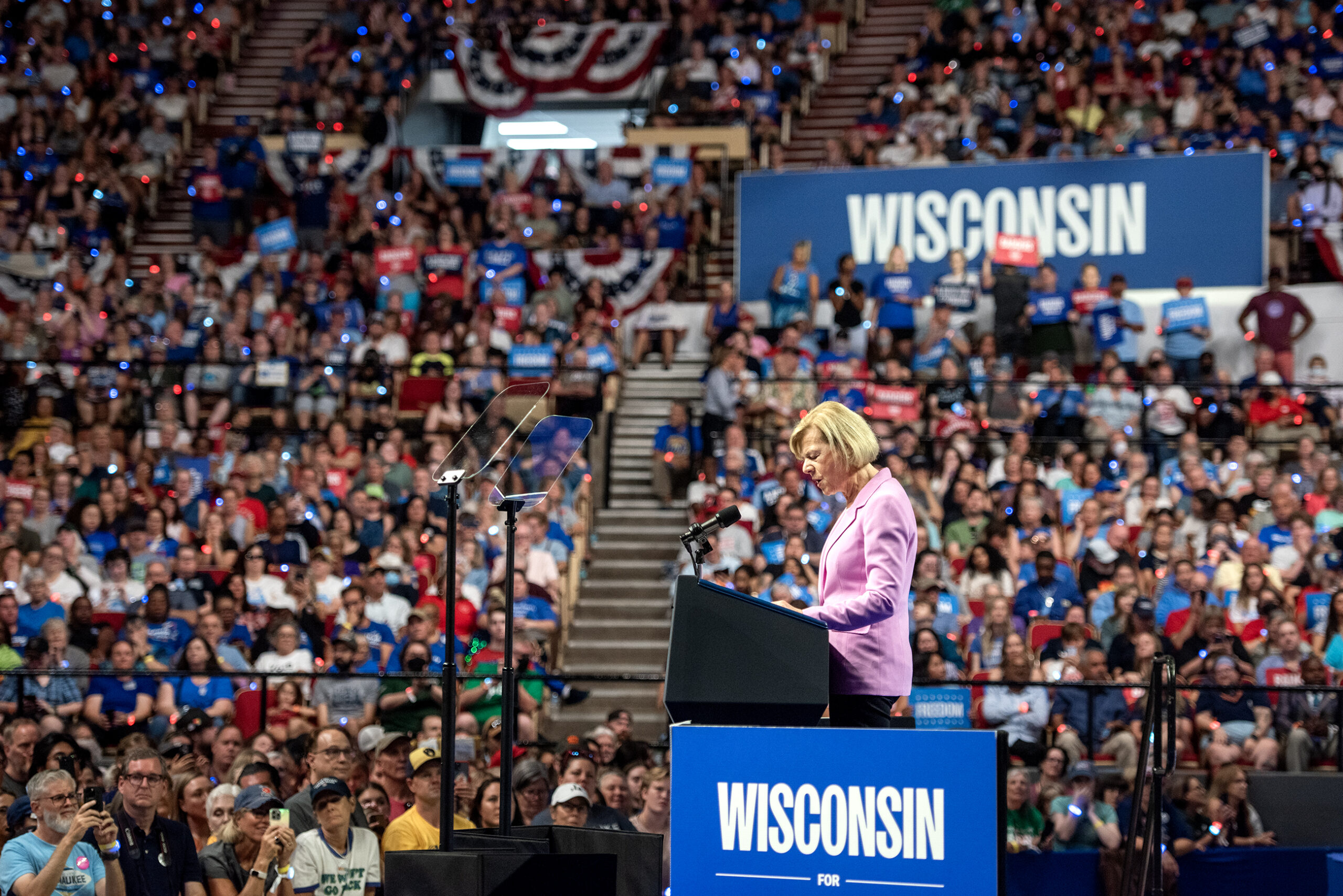
Baldwin’s rural appeal is unmatched among Wisconsin Democrats
In swing state Wisconsin, the race for president has dominated campaign season this year. Democrats have been fired up ever since Vice President Kamala Harris became their party’s nominee to take on Trump.
But Baldwin’s race is also grabbing the national spotlight. Angela Delamar and her partner, Joe, live on the southern border in Texas, but they’ve rented a short-term apartment in Madison to spend two months campaigning in the battleground state.
“We spend our retirement doing anything we want to do, which includes doing good things and helping and making the world a better place,” Delamar said. “And this is where we chose to do that.”
She said the pair had chosen to spend the day door-knocking for Baldwin — of all the close races in all the swing states in all the world — because of Wisconsin’s national importance.
“We feel like it’s very important to keep the Senate blue,” she said, citing Democrats’ approach to immigration, back in her community, as one issue that motivates her.
Baldwin posed for a photo with the Madison group and then departed for another series of events farther west. Her team says such a full schedule is typical in the final weeks of the campaign.
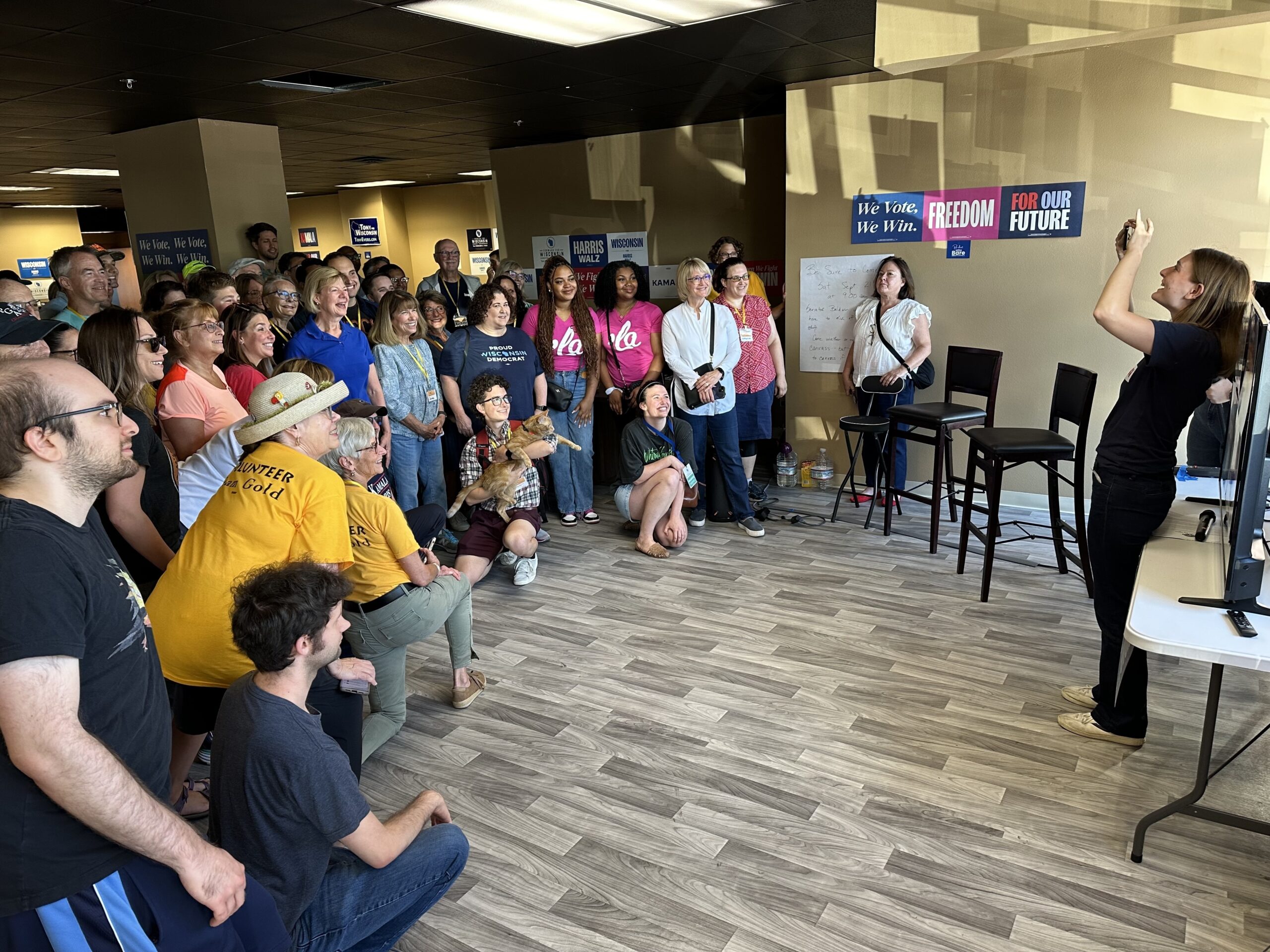
At a meet-and-greet later that day with community members in Richland Center, where a sweltering sun faded to threats of rain, a crowd stood outside the freshly painted county Democratic Party office. A dozen local Democratic activists recently purchased the building, looking to reestablish the party’s presence in this community of about 5,000 people.
On the side of the building, a bright blue mural depicts Lady Forward in front of the state Capitol, with the words “Embrace change for a better future.” Across the street, an enormous yard sign supports Trump’s reelection campaign.
Richland Center is the county seat of Richland County, which Trump won in both of his previous campaigns for president. It’s also a county that Baldwin carried twice.
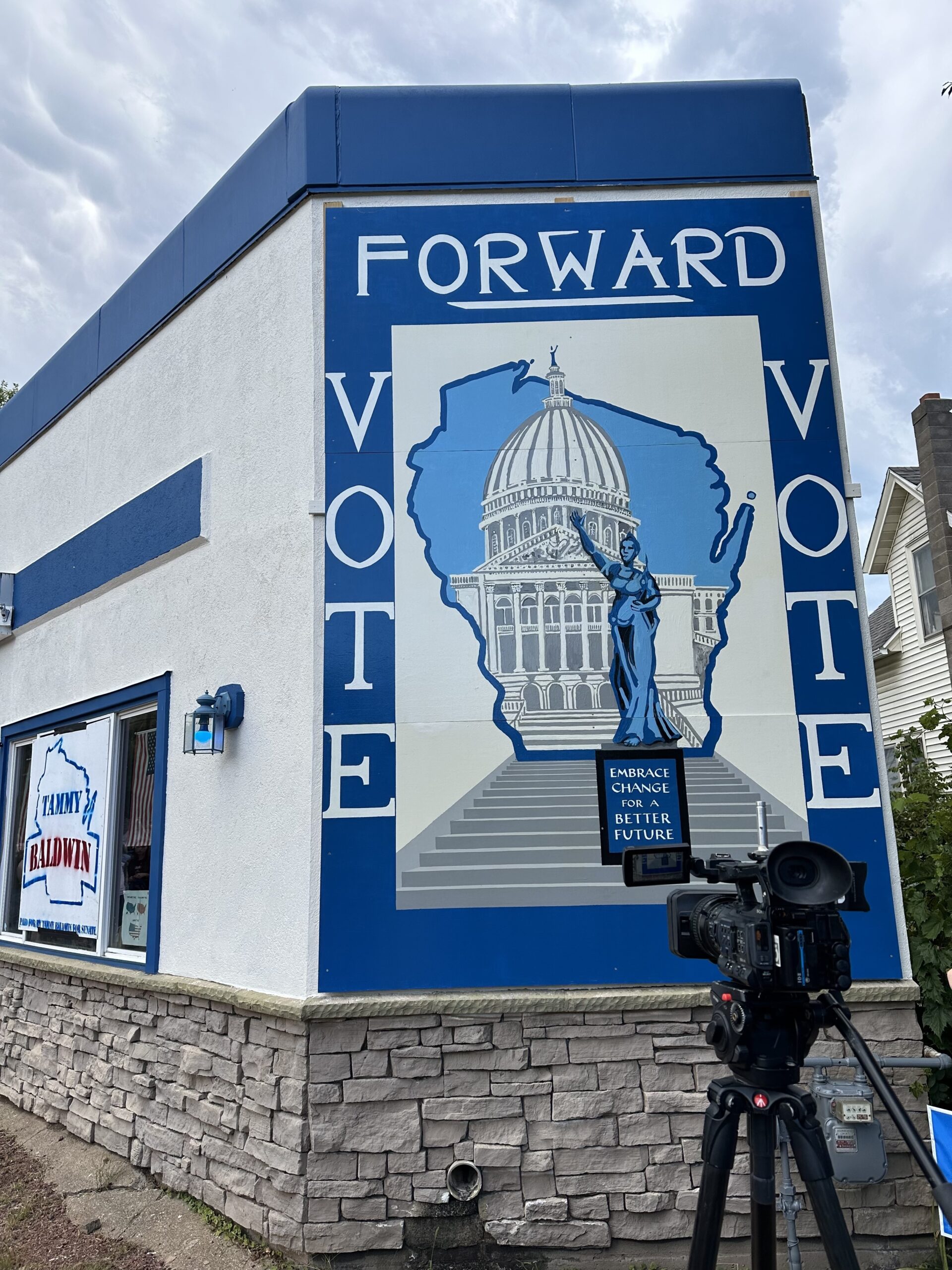
Baldwin has a unique advantage over other members of her party. Her campaigns have appealed to rural voters who’ve drifted away from Democrats over the last two decades.
That crossover appeal was evident in a recent statement by the Wisconsin Farm Bureau Federation, which formally endorsed all five of Wisconsin’s Republican U.S. House incumbents and — notably — Baldwin. It was the first time in more than 20 years the group had endorsed a Democrat running for statewide office in Wisconsin.
Even when she doesn’t win rural counties, Baldwin has managed to lose them by closer margins than other members of her party. She even pulls in what her team calls “Trump-Tammy voters,” or people who split their tickets between the Republican nominee for president and her notedly liberal Senate candidacy.
Given the nature of a presidential campaign year, Baldwin told WPR she expects fewer ticket-splitters this year — “but not none.”
Her remarks to the crowd in Richland Center focused on her record, pointing to legislation she authored supporting things like LGBTQ+ marriage rights, health care access and the agriculture industry.
She had some party star power with her at this stop. Pennsylvania Gov. Joshua Shapiro pointed to the national stakes of Baldwin’s campaign, and praised her record of speaking to voters beyond the obvious Democratic base.
“I know folks are frustrated sometimes when they see their government, but then they get an opportunity to see a senator like Tammy Baldwin who lives every day…around the idea of getting stuff done, of showing up in communities, not writing certain people off because of maybe how they vote in a national election,” he said.
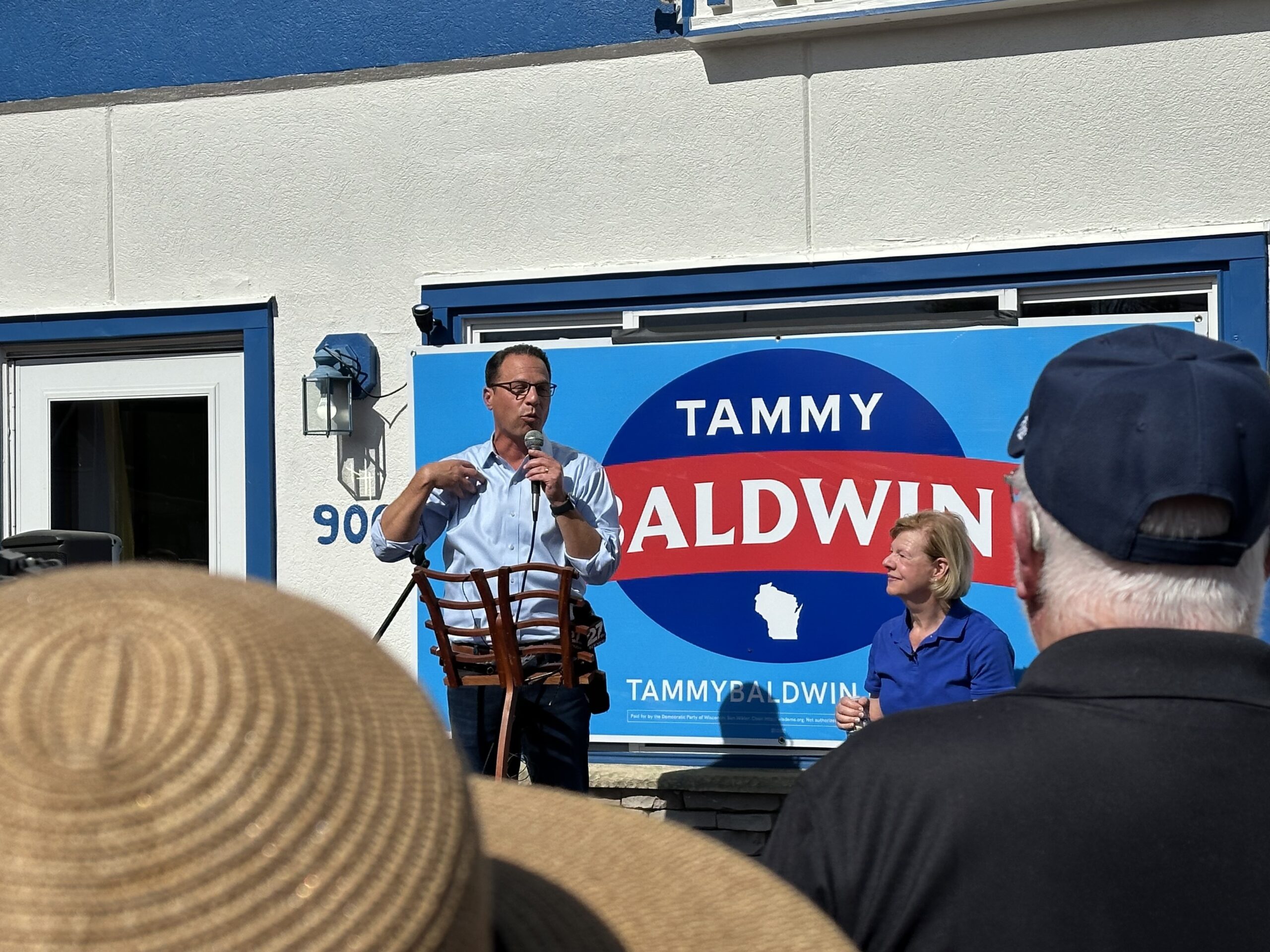
A close race and a $100M campaign
Baldwin has been in politics for 38 years, starting with a seat on the Dane County Board of Supervisors in 1986. Since then, she’s never lost a race.
She served six years in the state Assembly and 14 years in Congress, where she was the first openly lesbian member of the U.S. House of Representatives. When she defeated former Gov. Tommy Thompson for the Senate in 2012, she became the first openly gay member of that chamber, and she roared to a landslide reelection in 2018, winning by 11 points.
But Baldwin faces challenges this year that weren’t present during her previous Senate runs.
In both 2012 and 2018, her GOP challengers faced vicious Republican primary challenges that depleted their campaign funds and divided the GOP base. This year, Hovde managed to avoid those intraparty divisions, freeing him up to spend his time and resources introducing himself, and attacking Baldwin.
Polling suggests the race is close. According to the most recent Marquette University Law School survey, Baldwin leads Hovde by about 7 points. But according to reporting by Axios, internal polling shows the race may be even closer. The Cook Political Report recently shifted its rating of Wisconsin’s Senate race from “Lean Democratic” to “Toss Up.”
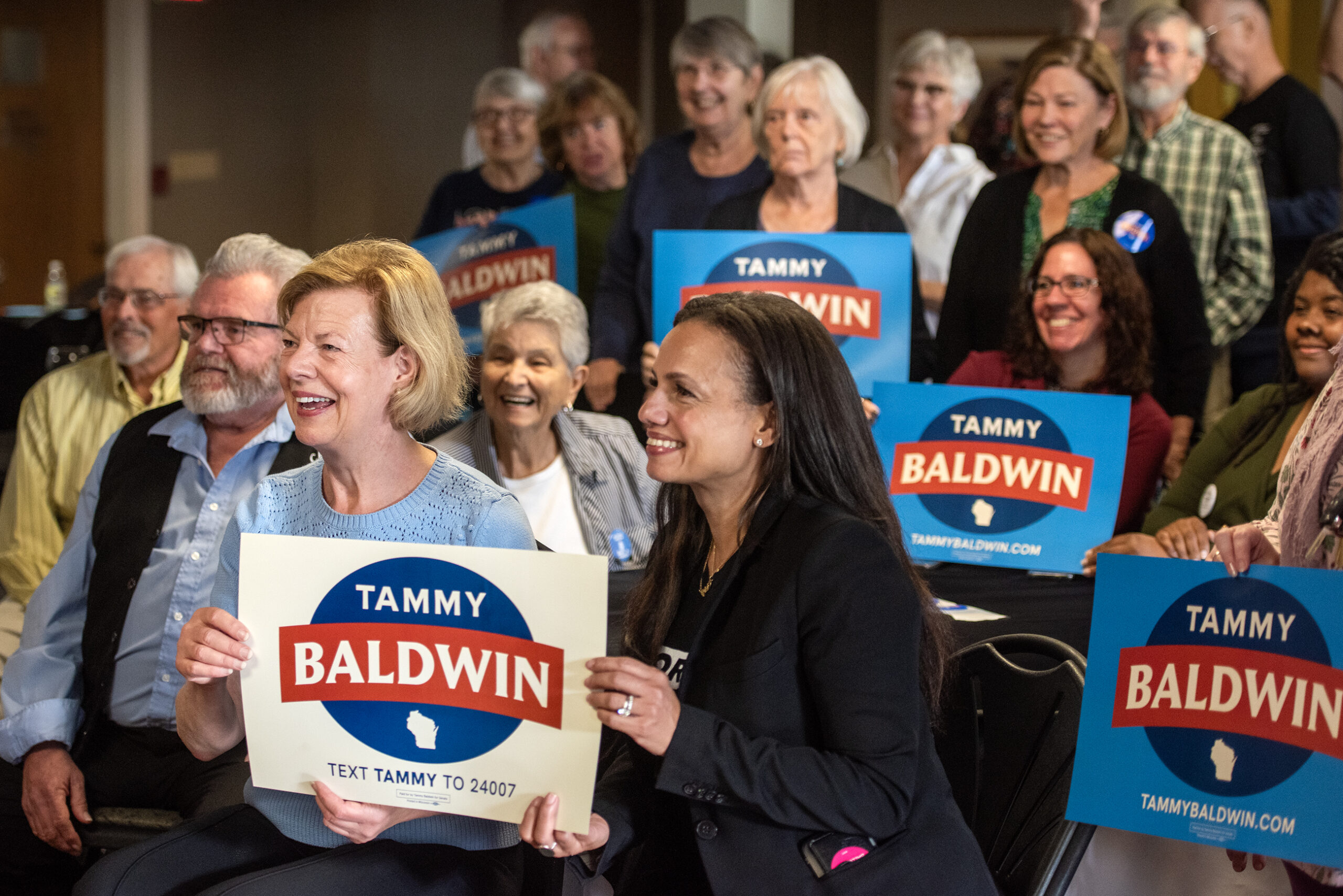
The scale of Baldwin’s 11-point victory in 2018 victory was unusual, said Marquette University pollster Charles Franklin, fueled nationally by an anti-Trump sentiment that motivated Democratic voters during the midterms, and helped locally by the bruising Republican primary.
And while Baldwin tends to pull in more independent voters and appeal to some Republicans, partisan voting has grown more entrenched over time. Voters today are less likely to split their tickets across parties than in previous decades.
“Now we’re seeing these much harder partisan lines,” Franklin said. “And within elections, we see those lines harden month to month as the election approaches.”
The stakes of the campaign — as Republicans seek to flip the Senate and Democrats try to maintain control — has translated to big dollar spending. About $100 million in outside money has poured into the state. Hovde has raised about $16 million — about $13 million from himself. Baldwin has doubled those numbers, raising about $32 million, according to public filings.
The funds have paid for waves of attack ads. Baldwin has criticized Hovde’s career managing the Utah-based Sunwest Bank and his life as a part-time resident of Laguna Beach, California, portraying him as a wealthy outsider, out of touch with Wisconsin values.
Hovde in turn has criticized Baldwin for not disclosing the financial assets of her partner, who is a private wealth adviser. Under Senate rules, she’s not required to disclose those assets because the two are unmarried.
Those arguments may not ultimately resonate with undecided voters, said Kathleen Dolan, a political scientist at the University of Wisconsin-Milwaukee. She argued that American politics have shifted to being so tribal that candidates need to focus foremost on turning out a base.
“The sort of guiding principle in elections in the United States in the last 15 years or so is that there really aren’t persuadable voters anymore,” she said. “So Wisconsin will be decided based on which candidate’s party has a better ground game.”
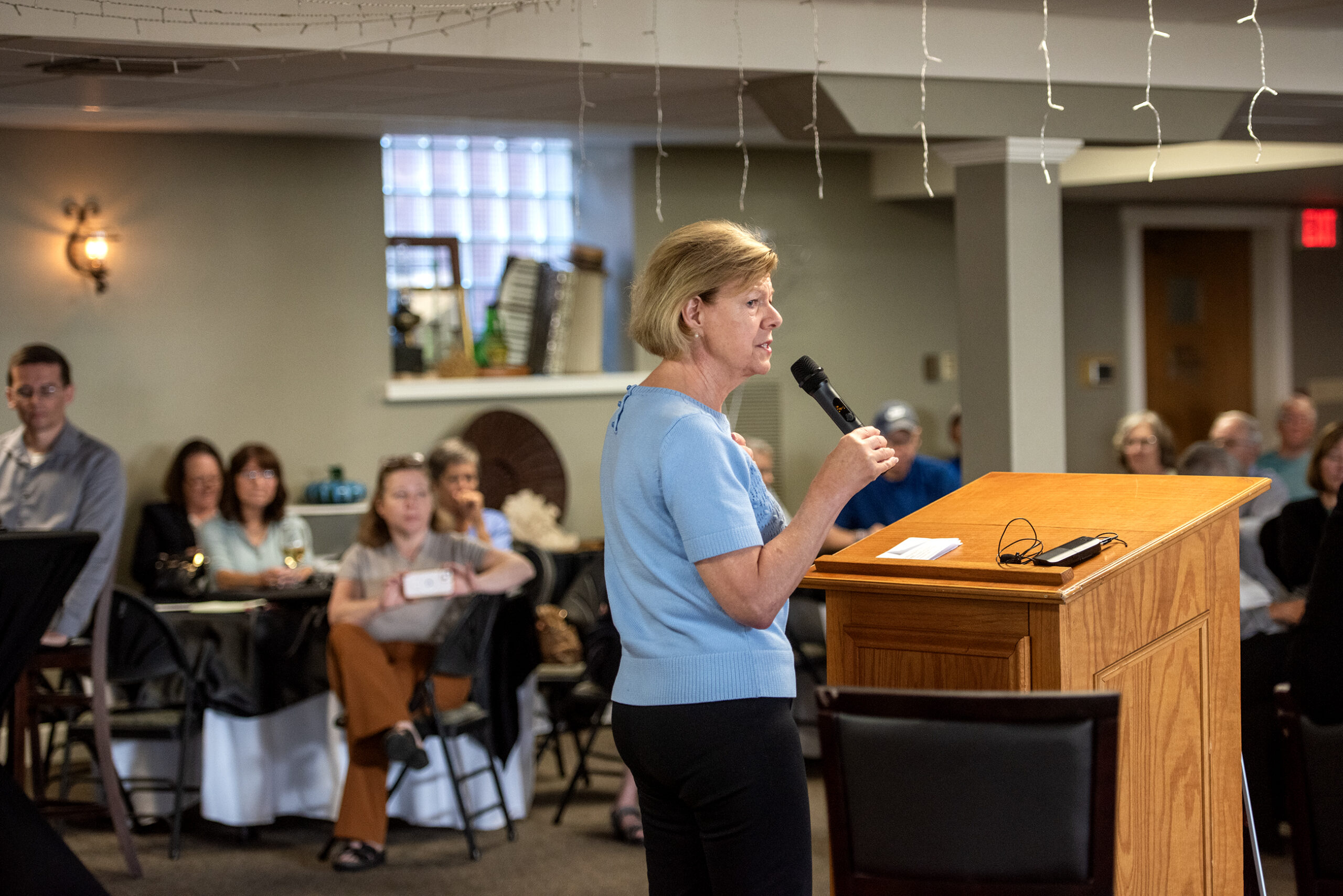
To that end, Baldwin is campaigning at a breakneck pace. In one week in early October, she appeared at events in eight counties across southern Wisconsin, from Democratic strongholds in Milwaukee, Kenosha and Racine counties to more purple regions in Dodge and Waukesha counties. She met with Black and Latino voters, union workers and hardcore party volunteers. She revved up doorknockers and stopped by local businesses.
Baldwin insists that, even in an age of hyperpartisanship, she can still pull in voters across the spectrum and the state.
“It’s really important to me to travel the state,” Baldwin said. “To meet people where they’re at, listen, and then take what I learn with me to get to work in Washington.”
Editor’s note: Read WPR’s profile of Republican U.S. Senate candidate Eric Hovde here.
Wisconsin Public Radio, © Copyright 2025, Board of Regents of the University of Wisconsin System and Wisconsin Educational Communications Board.

